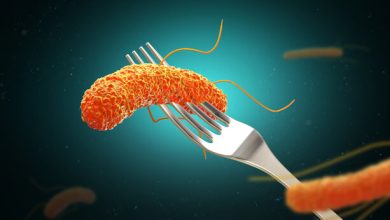It’s Time To Discuss Erectile Dysfunction As A Health Problem

Most people fear addressing sexual illnesses. However, these diseases can strike us at any time, and it is important to have some understanding of them so that we can recognise them and seek treatment.
Erectile dysfunction, or ED, is a common sexual condition among men. Fortunately, this is a treatable condition. Continue reading to learn the basics of this disease.
What is the definition of erectile dysfunction?
Some men are unable to achieve or maintain an erection long enough to engage in sexual activity. However, erectile dysfunction is a disorder in which the problem becomes persistent, meaning that getting an erection is often difficult.
Since ED makes a man believe he is impotent, it can have a debilitating effect on his mind. It can also cause intimacy problems in a relationship.
How would you know if you have ED for sure?
How can you say if your lack of erection is a temporary issue or a sign of sexual dysfunction (erectile dysfunction) because it can be caused by emotional turmoil?
If you have ED, you can experience the following symptoms:
Low libido or a lack of sexual appetite are also symptoms of low libido.
- Ejaculation that occurs too soon
- Incapacity to experience orgasm
If these signs last more than two months, you are most likely suffering from erectile dysfunction.
You are even more vulnerable to ED if you are a chronic patient.
Why should you be worried about erectile dysfunction?
Erectile dysfunction may be a symptom of an underlying health disorder as well as a source of relationship issues. One of these illnesses that requires urgent care can cause ED.
- Blocked blood vessels
- Heart problems
- High levels of bad cholesterol or LDL
- Diabetes
- Hypertension
- Parkinson’s disease
- Multiple sclerosis
- Sleep disorders
What factors increase the chances of developing ED?
Here are a few factors that improve the risk of developing erectile dysfunction.
- Tobacco usage narrows the blood vessels and decreases the blood flow to your penis (an erection is only possible when a large volume of blood travels to the penis).
- Obesity also affects the supply of blood to the penis.
- Surgery or radiation therapy for prostate cancer.
- An injury to the nerves or arteries that supply blood to the penis.
- A procedure that includes the spinal cord or nerves.
- Drinking heavily or taking drugs.
How do you know if you have erectile dysfunction?
A healthcare professional will begin by asking you specific questions about your symptoms and medical history.
Is there a test that can help diagnose erectile dysfunction? Your doctor can order a few tests, such as blood tests, sonography, or a test for Nocturnal Penile Tumescence.
Is it possible to get rid of ED?
Fortunately, ED can be regulated. Sexual therapy can be helpful if the cause of the condition is psychological. Speaking with a therapist will assist you in overcoming the mental barriers that hinder you from achieving an erection.
If any medications you’re taking are the cause of this problem, your doctor might lower the dosage or change the medication.
If there are other reasons, you might be prescribed medications like Vidalista 20 to increase blood flow to the penis and allow you to have an erection.
Medication can be herbal or allopathic, depending on the underlying condition. You can pick which choice you want and discuss it with your healthcare provider.
Therapy should be used in treatment. It is important to stress that erectile dysfunction is not anything to be ashamed of. You may have a regular and happy sexual life with the right care.
Prescription Medication
To help you manage the symptoms of ED, your doctor can prescribe medication. It’s possible that you’ll have to try a few different medicines before you find one that works. To better treat ED, the following oral pills stimulate blood flow to your penis:
- avanafil (Avaforce)
- sildenafil (Fildena 100)
- tadalafil (Vidalista 20)
- vardenafil (Vilitra 60)
Another medicine that can be used to treat erectile dysfunction is alprostadil (Caverject, Edex, MUSE). It’s available in two forms: as a suppository for the penis or as a self-injection at the base or side of the penis.
If your testosterone levels are poor, testosterone therapy (TRT) may be prescribed.
ED may be caused by medications taken for other reasons. Discuss your medications with your doctor to see if they’re the cause of your symptoms. You may be able to substitute another choice. Do not quit taking pills without consulting the doctor first.
Side effects are possible with erectile dysfunction medications. Speak to the doctor if you’re getting any adverse side effects. They may be able to suggest a particular treatment. Find out more about the medicines used to treat ED.
Read about natural ways to cure ED



